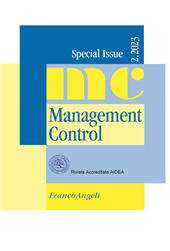On the role of cost-effectiveness in accounting
215-225 p.
Cost-effectiveness refers to the achievement of optimal allocation of limited resources and its ultimate purpose is to support rational decision-making. Cost-effectiveness principles govern financial reporting and managerial accounting frameworks, yet in practice these might not have been formally characterised and identified within the accounting literature due to semantic issues and norms. This article explores the nexus between cost-effectiveness and accounting by conducting a scoping review of the published literature. Findings from this study suggest that use of the cost-effectiveness criterion has increased over time and been more frequently employed by authors affiliated to U.S. academic institutions.
Cost-effectiveness principles have been invoked both in published financial and managerial accounting research. However, only a handful of mostly empirical studies have quantified cost-effectiveness evidence and formally applied and discussed its analytical methods. This article highlights a research gap pertaining to the development of interdisciplinary frameworks and analytical methods able to formally integrate the concept of cost-effectiveness and cost-benefit analyses into accounting research. [Publisher's text].
Fait partie de
Management Control : supplemento 2, 2023-
Articles du même numéro (disponibles individuellement)
-
Informations
Code DOI : 10.3280/MACO2023-002-S1010
ISSN: 2239-4397
KEYWORDS
- cost-effectiveness, cost-benefit, accounting, decision-making


